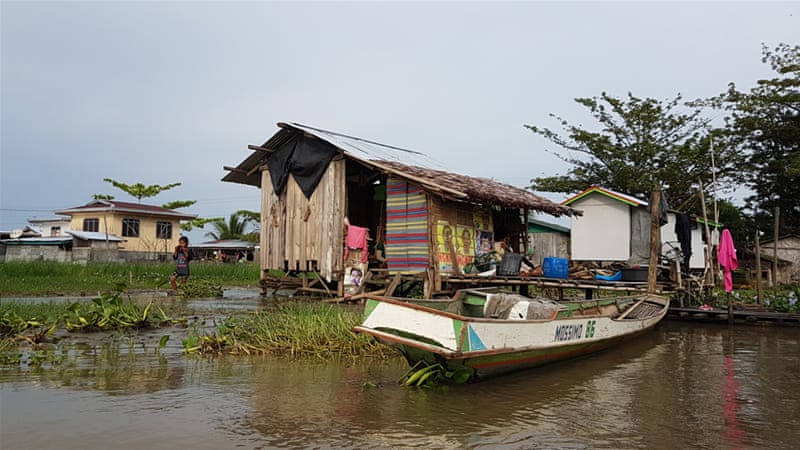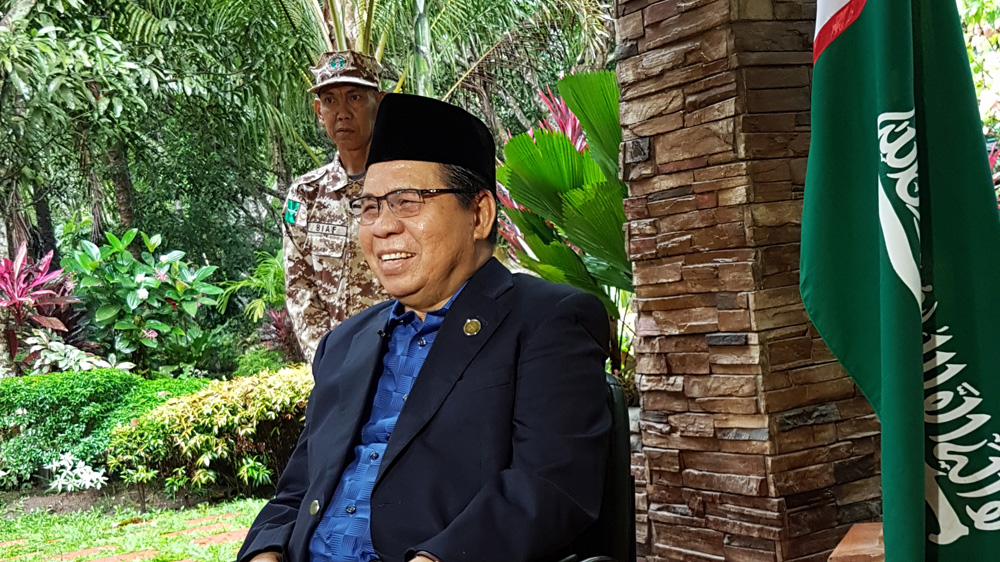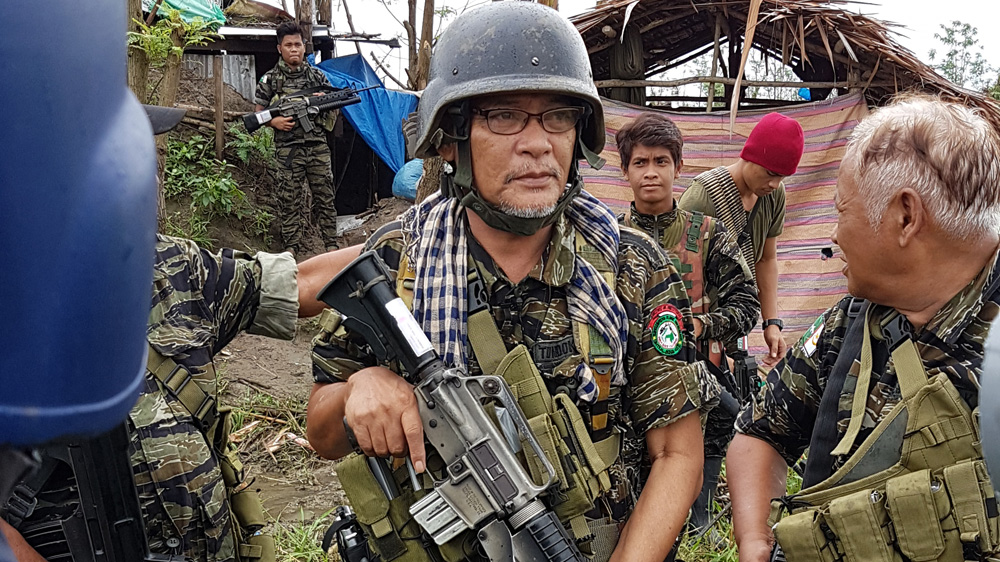
Abject poverty has driven many people in Mindanao to rebel against the government in Manila [JC Gotinga/Al Jazeera]
ISIL's Southeast Asian oblates may have failed at their first attempt to carve out territory here, but their defeat was by no means final.
With the Philippine government delaying a peace deal that would give a predominantly Muslim southern region more autonomy, experts, rebels and even officials warned of possible attacks from several armed groups that have pledged allegiance to the Islamic State of Iraq and the Levant (ISIL, also known as ISIS).
Al Haj Murad Ebrahim, leader of the Moro Islamic Liberation Front (MILF), told Al Jazeera, "Radical groups emerged whenever there were failures in the peace process. Leaders with radical ideologies exploit the people's frustration at these failures."
The MILF fought decades with the government of the Christian-majority country, first for independence and then for autonomy. It broke away from the original Moro National Liberation Front (MNLF) in 1977 when the MNLF settled for autonomy after years of fighting for a separate state.
Now, the MILF is steps away from sealing a deal that will expand the autonomous region and give its government more substantial powers.
Philippine President Rodrigo Duterte promised to sign the deal into law after his predecessor, Benigno Aquino III, failed to do so. However, Duterte's allies in congress have not prioritised passing the measure.
"There is consistent prejudice against the Bangsamoro people," Ebrahim said, referring to the southwestern Mindanao region that is home to several Muslim ethnic groups collectively called "Moro".

Al Haj Murad Ebrahim leads the Moro Islamic Liberation Front as it negotiates a peace deal with the Philippine government [JC Gotinga/Al Jazeera]
Telltale signs
Ebrahim and other Moro leaders said the attack on Marawi should not have come as a surprise; they all made public warnings about the emerging ISIL presence in their region, and pro-ISIL groups had been publishing propaganda about their plans of setting up a caliphate in the Philippines.
Agakhan Sharief, owner of a university in Marawi and a respected religious leader, knew the young men who eventually became the leaders of the pro-ISIL Maute group of fighters who laid siege to the city.
Sharief told Al Jazeera, the Maute brothers attended a rally that he led in the summer of 2015 to protest a setback in the Bangsamoro peace deal following a botched military operation that aroused public suspicion against the MILF.
Sharief said Omar, Abdullah and Madi Maute approached him earlier and asked him to join an armed group they were forming. Sharief refused.
During the rally, Sharief's voice boomed on loudspeakers, warning that a group of young men with dark plans would wreak havoc on the country if the government did not follow through on the Bangsamoro peace deal.
True enough, on May 23 this year, the Maute group of fighters launched the attack on Marawi that would last five months and lead to the deaths of at least 1,000 people.
"Why do some government officials blame the war on us Moros?" Sharief asked. "They should have acted on the information we gave them."
Lessons learned
At the height of the battle to retake the city, Philippine defence chief Delfin Lorenzana admitted he and other security officials "failed to appreciate" intelligence reports on local ISIL-linked groups.
After the military killed Omar Maute and his conspirator Isnilon Hapilon, Lorenzana told a press conference that lessons had been learned from the war in Marawi about the threat posed by pro-ISIL groups.
"We used to ignore those threats. From now on, we will take them very seriously," Lorenzana said.
The Philippine government received help from countries including China, Indonesia, Malaysia, Russia and the United States in winning Marawi back from the attackers.
However, significant help in pushing back pro-ISIL fighters is coming from the government's former enemy: the MILF.

Wahid Tundok commands an elite unit of the MILF. He and his troops recently drove pro-ISIL fighters from a community in Maguindanao province in the southern Philippines [JC Gotinga/Al Jazeera]
In a marshland in Maguindanao province, some 200km from Marawi, Commander Wahid Tundok recently led an elite MILF unit in reclaiming territory from a pro-ISIL splinter group.
Their guard was still up when Al Jazeera visited them for an interview. Tundok and his troops constantly patrol a wild and vast area unfamiliar to government forces.
"It takes a Moro to fight a Moro," Tundok said ruefully of battling their kin who submit to ISIL's ideology.
"This is our sacrifice - to fight our own brethren and shed our own blood for the sake of lasting peace," he added.
'Terrorism is everywhere'
Critics believe the Bangsamoro peace deal is crucial in cutting ISIL's influence on armed groups, but it is unclear whether Duterte thinks so.
"Duterte faces the daunting task of pre-empting terror plots by remnants of the ISIL-affiliated movement … and needs to rekindle the deadlocked peace negotiations with the MILF," said Richard Heydarian, political science professor at De La Salle University in Manila.
The president has acknowledged he is aware of what his country is up against.
"Terrorism is everywhere," Duterte told an audience recently, warning them to be ready for possible attacks.
http://www.aljazeera.com/news/2017/10/stalled-peace-deal-crucial-philippines-isil-fight-171024143318897.html

No comments:
Post a Comment
Note: Only a member of this blog may post a comment.